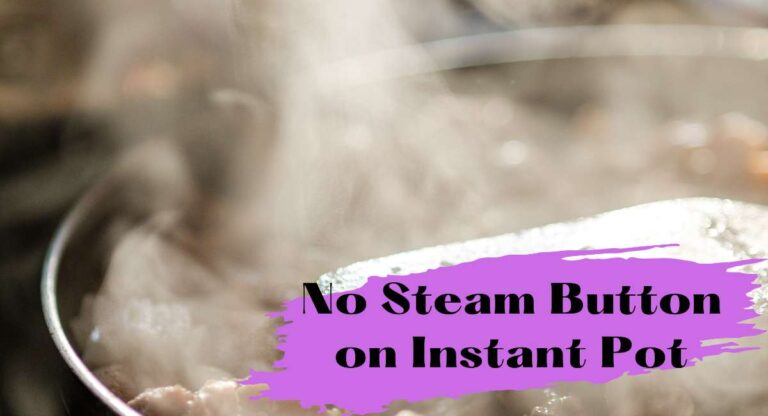How Much Water Is Needed for Pressure Cooking?
For a pressure cooker to work effectively, there must be adequate liquid that is heated up to produce steam that is essential for cooking. The liquid can be water or broth.
The quantity of water needed for pressure cooking depends on the size of the pressure cooker and what food is being cooked. On average, an 8-quart pressure cooker would require a minimum of 2 cups and at least a cup for the 3- and 6-quart sizes.
The larger the pressure cooker the more the water. The type of pressure cooker also affects the quantity of water you use.
Extra care should be taken when cooking foods that absorb water and expand in size.
You’ll need to leave room for the expansion when adding the water to ensure the pressure cooking is not affected.
The foods that expand include most cereals such as beans, rice, and dried vegetables. It’s best to soak these foods overnight to minimize this occurrence.
Soaking also helps the food cook faster.

Why Do Pressure Cookers Need Water?
Water in a pressure cooker is essential as it facilitates cooking. When the water in the pressure cooker is heated, it turns to steam. This steam is contained in the pressure cooker with the aid of the sealing ring.
The steam then works to raise the temperature of the water above the boiling point. The high temperature and pressure created in the cooker are responsible for food cooking.
The absence of water means pressure cooking can not be achieved. Not only should you ensure that the water is adequate, but also minimize altering the components.
Avoid using thickening agents that will affect the boiling point of water. The agents work by increasing the viscosity of the water and food mixture. Although not substantially, they alter the properties of water that affect pressure cooking.
If you need to use these agents, add them when the pressure cooker has reached optimum temperature and pressure or when the food is done cooking.
Examples of thickening agents include gravy powder, arrowroot, cornstarch, gelatin, and all-purpose flour.
What Happens If Not Enough Liquid in the Pressure Cooker?
The impact of not having enough liquid in your pressure cooker depends on the type you have.
For electric pressure cookers, the absence of liquid will reduce the quantity of steam produced. Without steam, the pressure cooker won’t reach the required pressure. The appliance will give a burn error message and cooking won’t go on.
When it comes to the stovetop pressure cookers, the minimal water in the appliance will dry off leading to a build-up of pressure.
If the pressure cooker is designed with safety features, the pressure regulator will work to let the excess pressure out. You might hear a hissing sound when this happens.
Secondly, the plug sensing the excess pressure will start to melt. If the safety features are not in place, the pressure cooker can explode.
An explosion is an extreme scenario. Ideally, when a stovetop pressure cooker is on, you’re obligated to keep an eye on it.
You’ll be able to tell when pressure is building up once the pressure release valve starts producing the hissing sound.
Read: How Long Do Instant Pot Pressure Cookers Last?
How Do You Know If Your Pressure Cooker Is Out of Water?
It’s unlikely that the pressure cooker will run out of water completely. However, you can tell that the levels have drastically dropped when you get the error message. Another indication is when the food burns and some are stuck on the appliance.
You may need to adjust the next time you’re preparing the food. As mentioned before, keep checking on the pressure cooker to identify any issue as it arises, and always add a minimum of one cup of water to the pressure cooker.
Can You Add Too Much Water to A Pressure Cooker?
Yes, you can add too much water to the pressure cooker when you fill it to the brim. DO not fill the pressure cooker past the maximum level. It should only be about two-thirds full.
As with not using adequate water, you should avoid using too much water or broth. Water in the pressure cooker will create too much steam and in turn high pressure that will overcook the food.
The high pressure and temperature will break down the food changing its texture. The flavor of food will also be affected as it’ll be transferred to the excess liquid. In some cases, the pressure build-up might cause the pressure cooker lid to come off.
Filling up the pressure cooker can also cause blockage to the pressure release valve, the Bakelite, and other pressure cooker fittings.
If the recipe calls for a lot of water, it’s recommended to add in batches as opposed to all at once. The key to using a pressure cooker irrespective of the type is balance and control.
Ensure that you control the quantity of food and water you’re cooking which will regulate the temperature and pressure.
Read: Are Aluminum Pressure Cookers Safe?
Can I Cook in A Pressure Cooker Without Water or Liquid?
No. You can’t cook in a pressure cooker without some form of liquid. However, you don’t have to use water. Broth is adequate to prepare meals. This type of cooking using a pressure cooker is known as infusion cooking.
Here, the liquid used has a mixture of spices and herbs to enhance the flavor of the food being prepared. In a pressure cooker, infusion cooking works best for thin cuts of meats and vegetables.
Conclusion
The minimum amount of water required for pressure cooking is one cup which is about 250ml. Although this is a rule of thumb, the quantity of water depends on the pressure cooker type, size, and the type of food being prepared.
Pressure cookers need water to form steam that helps to raise the temperature and pressure. It’s possible to add too much or too little water to a pressure cooker.
Both actions have consequences. You can either burn out your food when the water is too little or prepare overcooked flavorless food.
It’s important to have the right amount of water when pressure cooking. If unsure, follow the recipe to the letter and constantly check on the pressure cooker to check the progress.
You’re also advised against using thickening agents that interfere with the consistency and boiling point of the water.
Related Articles:
- What Is the Difference Between the High and Low Setting on A Pressure Cooker?
- Can You Use a Pressure Cooker on An Electric Stove?
- The Instant Pot Sous Vide Function: Everything You Should Know
- How Long to Wait Before Opening a Pressure Cooker?
- My Instant Pot Doesn’t Have a Poultry Button
- How Hot Does a Pressure Cooker Get?




